
Special Need S Re S ou R ce Guide l o NG iS la N d
www.newyorkfamily.com

Publisher: Clifford Luster
e ditorial d irector:
Donna Duarte-Ladd
a ssociate Publisher: Erin Brof
advertising d irector:
Stacie Goldberg
dePuty editor: Jeannine Cintron
digital editor: Kaitlyn Riggio
e vents Manager: Shara Levine
e ditorial a ssistant: Shara Levine
Partnershi P Managers:
Lauren Alperin, Lauren Anchin, Joan Bergman, Mary Cassidy, Suzanne Cirigliano, Chris Cunnington, Lori Falco, Shelli Goldberg-Peck, LynnMarie Hanley, Lisa Herlihy, Nicole Miller, Janine Mulé, Nina Spiegelman, Gwen Tomaselli
Marketing & s trategy d irector:
Rosalia Bobé
Marketing & e vents a ssistant:
Ashley Rivera
sales & Marketing assistant:
Elana Cantor
Marketing a ssistant: Tilejah Gilead
Media sales a ssistant:
Anastasia Aktipis
art d irector: Leah Mitch
Web d evelo P er: Sylvan Migdal
g raP hic d esigners:
Arthur Arutyunov, Connie Sulsenti
e ditors at large:
Serena Norr, Cris Pearlstein
e ditorial contributors:
Jana Beauchamp, Mia Salas
e ditorial intern: Avital Kessner
coNtact iNfoRmatioN
advertising : (718) 260-4554
Advertising@NewYorkFamily.com
4 | s pecial child g lossary
Part of navigating a special needs or disability diagnosis is knowing the words used to describe it. Check out our helpful glossary
8 | autism
Many parents have that ‘a-ha’ moment when they realize their child may have a more profound challenge than previously expectant. Here are steps to take if you think your child is on the spectrum
10 | dyslexia
Early signs of dyslexia and
intervention practices may vary from person to person. We sat down with an expert for helpful tips
14 | adhd
ADHD in Children (symptoms, causes and non-medication treatment)
16 | s pecial n eeds listings
Helpful resources for the special need parent
18 | s pecial n eeds community
The leaders and schools that support the Special Needs families
circulation: (718) 260-8336
Tina@NewYorkFamily.com
President: Victoria Schneps-Yunis
ceo : Joshua Schneps
coo : Clifford Luster
2 NewYorkFamily.com | April 2024
get in touch
Share your feedback and ideas about family life in New York! Email us at editorial@newyorkfamily.com and tag us at #newyorkfamily
address: New York Family Media/Schneps Media 1 MetroTech Center North, Third Floor Brooklyn, NY 11201
New York Family has
awarded the PMA Gold Award for for Overall Design and Bronze for Website General Excellence. New York Family is published monthly by Queens Family Media, LLC. Reproduction of New York Family Media in whole or part without written permission from the publisher is prohibited. All rights reserved. ©2024 Queens Family Media, LLC 2023 E F X S O ? ? Y I ? contents
been
The clinical team at CTM can help.
Is your child struggling with: School? Attention? Socializing? Tantrums? AREAS OF SPECIALTY
•Learning Disabilities
•ADHD
•Autism
•Developmental Delays
Help with:
•Anxiety, Depression, behavioral issues
•Families in court over custody, education or legal reasons
• Extra time on tests, both in classrooms, SATS, ACTS, SHSATS
• IEPs, 504 plans, private school placement
• Forensic (injury, special education, child custody, immigration) cases
• Medication management


Dr. Sanam Hafeez, a renowned and widely sought expert in the field of mental health and neuropsychology, leads the clinical team at CTM. Our doctors are trained to help not only the child but their ecosystem in supporting their needs. Well-being, emotional and academic, goes hand in hand, and we can guide you to both. Please call or visit our website to learn more.
We accept most commercial insurances* credit cards, cash, Venmo
* GHI, Cigna, 1199, Aetna, United Healthcare, BCBS/Anthem, Magnacare





April 2024 | The Special Child 3
114-20 Queens Blvd, Suite CS2 Forest Hills, NY 11375• 718-441-0166

>SPECiAL CHiLD
Glo SS a Ry
Terms that families with children with disabilities should know
By mia Sala S
Part of navigating a special needs or disability diagnosis (Developmental disability: Physical, learning, language, or behavioral impairments that will delay
your child’s development. ADHD, Autism, learning disabilities, etc. are all examples of developmental disabilities) is knowing the words used to describe it.
But it can be intimidating to ask what everything means, especially when doctors
or websites seem to be speaking another language with acronyms like “ERSS” and “OT”. We’ve all been in that confusing place before and, as parents, it’s not a fun feeling.
That’s why, we’ve created a glossary for keywords that you may want to know as a parent of kids with disabilities.
This guide includes common disability words, phrases, and acronyms so that you can feel more confident in your parenting journey!
adhd (attention deficit/hyperactivity disorder) : A developmental disability that makes it difficult for your child to pay attention or stay focused. Look out for squirming and fidgeting, talking a lot, not being able to wait for their turn, or trouble concentrating.
4 NewYorkFamily.com | April 2024
special child

������������ is excited to announce the �������������������� Center in St. James!

Enrollment for our day-time Early Learner program is now open! Center services include ���������������������������� ���������������������������� of our BCBAs.
������������

Applied Behavior Analysis is a structured and �������������������������������������� ��������������������������������������������� interventions to the unique needs of each child ����������������������������������������
������������������������ ����������������������������������������� ������������������������������������ technician who is closely overseen and ���������������������������������������� Analyst.
���������������������������������� transparency with everyone on your child’s


• Home ABA services
• School-based behavior support
• Social skills groups
• Sibling support groups
• And more on the way!
������������������������������������������ service providers. This means that your child’s ������������������������������������ ���������������������������
����������������������������������� exceptional support. This includes full access to your child’s programming and weekly check-ins with the BCBA to answer any questions you may have.
Our goal is to create a community with our ������������������������������������������ ��������������������������������������� opportunities to meet with other parents and connect!

For Center Based Questions or
516-836-1447 ������������������������������������������ services provided call: 516-531-3673
April 2024 | The Special Child 5
ABA Services: Enrolling Now!
���������������
���������������������������
�������������������������������������
asd (autism spectrum disorder) : A developmental disability that may delay your child’s speech, motor, learning, and social skills. Early intervention (see below) can help improve skills.
down syndrome : A condition caused by an extra chromosome that affects how your child’s brain and body develop. Diagnosis typically happens before or during birth.
emotional disturbance : Mental health disorders such as anxiety, bipolar, OCD, etc. that have no direct, identifiable cause. Be on the lookout for aggressive behavior, withdrawal or nerves related to social environments, and vocal outbursts in public places.
learning disability: Difficulty learning and grasping new concepts. Learning disabilities include dyslexia (reading), dysgraphia (writing), and dyscalculia (math). See Special Education for more.
stutter : A speech disorder that makes it challenging for your child to say what they want to say. You may hear them repeat a sound a lot, hold one sound for a long time, or stop speaking mid-sentence.
h elpful resources
oPWdd (office of People with developmental disabilities) : A New York organization that can help connect your family to nonprofit services, based on what kind of treatment/therapy they need, and provide funding.
transition planning : Creating an action plan for what your child with disabilities will do after high school. This is often a part of your IEP (see below).
service provider : An agency or organization that will help your family navigate some aspect of your journey. This could be everything from speech therapy to after school programs with a focus on special needs to horseback riding as a form of physical therapy.
includenyc : A non-profit organization that advocates for young people in NYC to be included in their communities: classrooms, workplaces, etc. They have super informative resources for parents of kids with disabilities, and they can connect you with professionals who can help you
navigate your options even further.
s pecial education inclusion : Everyone in the classroom feels welcomed by the school, teacher, and classmates. For kids with disabilities, inclusion is definitely a keyword to look for when choosing a school!
ieP (individualized education Program) : A written plan for your child’s education as a special needs student. According to the NYC Department of Education (DOE), this means your child is guaranteed a free and appropriate public education in a Least Restrictive Environment (see below). Your child’s IEP will also include development and progress reports, evaluation results, specific needs, and anything else that is relevant to your child’s success.
ieP teams : Your IEP team will be made up of you (as a parent/guardian), a school psychologist, a special education teacher (and sometimes a general education teacher), and the district representative. It may also include a school physician or other service providers who have worked with your child.
lre (least restrictive environment) : Your child will be in a classroom with kids who do not have a disability diagnosis.
setss (special education teacher support services) : Either a special education teacher will design specific activities for children with special needs or the special education teacher will collaborate with the general education teacher to modify the entire classroom to accommodate.
sedl (special education distance learning) : Modifying special needs education for virtual/online students. This became especially important during the pandemic.
sWd (students With disabilities) : Used to refer to special needs children in the classroom.
sc– special class : If your child’s needs cannot be met in a general education classroom, they will have all classes taught specifically by a special education teacher. These classes are typically very small in NYC schools, with up to 12 students for elementary/middle school and up to 15 for high school.
Pbis (Positive behavioral interventions & support) : NYC school-wide approach that encourages positive behavior instead of punishing or pointing out the negative. One example of this is changing a poster from “No Food. No Weapons. No Drugs.” to “School Rules: Be Safe, Responsible, Respectful”. This positive environment is especially important for special needs education.
treatment & evaluation
adl (activities of daily living) : Day-today actions like brushing your teeth, going to the bathroom, walking up and down stairs, etc. that are used to determine your child’s diagnosis and progress.
early intervention: Services and support for infants and young children with developmental disabilities. Early intervention can often help improve your child’s skills and progress.
ot– occupational therapy: Focuses on ADL’s (see above) and other everyday skills that your child will work on.
Pt- Physical therapy: Focuses on physical developmental disabilities and helps your child with mobility and movement.
speech pathology: Focuses on language and speech disabilities to help your child communicate their thoughts.
regression : Your child loses skills that they previously had. If regression happens, you may want to revisit and revise your child’s IEP (see above).
at (assistive technology) : Any device that helps your child’s special needs by improving their capabilities. AT’s include wheelchairs, text to speech, voice recognition, and more.
aba (applied behavior analysis) : A positive-reinforcement program designed to understand your child’s behavior in real life situations. It is most commonly used for children with Autism, but it can also be effective for other developmental disabilities.
developmental milestones : Key movements, expressions, speech etc. that show your child’s progress. For little ones, this may include smiling at people, crawling, copying sounds, and reaching for toys.
6 NewYorkFamily.com | April 2024
special child
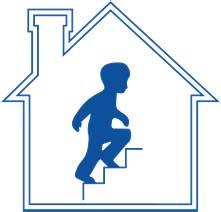

The Hagedorn Li�le Village School, Jack Joel Center for Special Children (HLVS), is a not-for profit program that provides services for infants and children up to 12 years of age with learning, language, social delays, motor impairments, and au�sm with no direct cost to families:
The Hagedorn Li�le Village School, Jack Joel Center for Special Children (HLVS), is a not-for profit program that provides services for infants and children up to 12 years of age with learning, language, social delays, motor impairments, and au�sm with no direct cost to families:


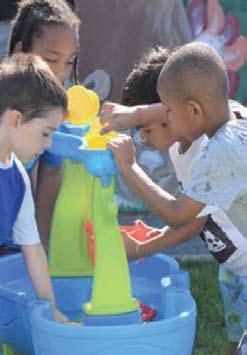
• Evalua�ons
• Evalua�ons
• Early Interven�on (Birth-3)
• Early Interven�on (Birth-3)
• SEIT
• SEIT
• CSE I�nerant Services
• CSE I�nerant Services
• ABA Home Programs
• ABA Home Programs
Related Services:
Related Services:
• Speech
• Speech
• OT/PT
• OT/PT
• Parent Training
• Parent Training
• Family Support Services
• Family Support Services
Special Ed Classes:
Special Ed Classes:
• Preschool (3-5)
• Preschool (3-5)
• School age (5-12)
• School age (5-12)
• Inclusion
• Inclusion
750 Hicksville Road, Seaford, NY 11783
750 Hicksville Road, Seaford, NY 11783
516.520.6000
516.520.6000
•
• www.li�levillage.org
www.li�levillage.org
Funded and regulated by Nassau County (NCDOH) and Suffolk County (SCDOH) Departments of Health & NYS Educa�on Department
Funded and regulated by Nassau County (NCDOH) and Suffolk County (SCDOH) Departments of Health & NYS Educa�on Department
Providing Services for over 50 Years, The Hagedorn Li�le Village School, Jack Joel Center for Special Children (HLVS), is a not-for-profit program that provides services for infants and children up to 12 years of age with learning, language, and social delays, motor impairments, and au�sm with no direct cost to families: Early Interven�on (El) and Commi�ee for Preschool Special Educa�on (CPSE) services are for children who have or who are suspected of having a developmental delay or disability. Evalua�ons must be referred by NCDOH/SCDOH for El and/or to the local school district for CPSE. Services are provided based on an individual child's elegibility as established by NYS DOH and/or NYS ED department and local government at no direct cost to parents. Parents are responsible for fees/costs associated with children.
Providing Services for over 50 Years, The Hagedorn Li�le Village School, Jack Joel Center for Special Children (HLVS), is a not-for-profit program that provides services for infants and children up to 12 years of age with learning, language, and social delays, motor impairments, and au�sm with no direct cost to families: Early Interven�on (El) and Commi�ee for Preschool Special Educa�on (CPSE) services are for children who have or who are suspected of having a developmental delay or disability. Evalua�ons must be referred by NCDOH/SCDOH for El and/or to the local school district for CPSE. Services are provided based on an individual child's elegibility as established by NYS DOH and/or NYS ED department and local government at no direct cost to parents. Parents are responsible for fees/costs associated with children.
April 2024 | The Special Child 7
AUTISM
Steps to take if you think your child is on the spectrum
BY EMILY LEVY
Many parents have that ‘a-ha’ moment when they realize their child may have a more profound challenge than previously expectant. Unlike your friend’s kid at the same age, your child has trouble maintaining friendships, struggles to communicate, or demonstrates repetitive body movements. Perhaps they have difficulty relating to the world around them and seems inflexible with their thoughts and behaviors. If you notice these characteristics, don’t ignore them. While your child could be delayed, it may be wise to seek a professional opinion and check if your child may be on the autism spectrum.
Learn the Milestones
Many children with autism show developmental delays early on and don’t meet typical milestones. For instance, by 6-9 months, most babies can sit up without support, babble sounds, and respond to their name. By 9-12 months, babies typically grab objects and toys, crawl, and stand independently. Most children can walk independently between ages 1-3, climb stairs, jump, stack objects, speak in short sentences, and follow basic directions. Between ages 3-5, children can typically toss a ball overhand, get dressed independently, and draw a full person with all features. Children ages 6-12 generally have developed strong friendships with peers and are usually independent in completing their school work. If you notice delays or regression in any of these milestones and your instincts tell you something is off, your child may be at risk for autism.
Identifying Autism
If you think your child has autism, take action. The sooner you identify and address autism, the better it will be for your family. Speak to your child’s doctor; he or she may inquire as to whether all developmental milestones have been met and may recommend an autism screening. This screening typically consists of a series of yes or no questions regarding symptoms. If your doctor suspects









that your child may have autism, your child may need to have a full diagnostic evaluation by an ASD specialist. Typically, the evaluator will observe your child, ask you as the parent a series of questions, fill out questionnaires, and administer a series of tests to your child. These factors will allow the evaluator to identify whether or not your child may have autism so you can take appropriate action for a concrete diagnosis.
Your Child Receives an ASD Diagnosis — Next Step
First off, don’t panic. There are many resources and a great deal of support available for children with autism, and your child is certainly not alone! However, the earlier you intervene and seek your child’s services, the more gains you will see. Once you receive the diagnosis, which typically includes a full report, read it thoroughly and review the evaluator or doctor’s recommendations. Reach out to your child’s school to let them know about the diagnosis and inquire about creating an IEP (Individualized Education Program) to map out the services your child will receive based on their needs. These services may include special education classroom placement, speech therapy, occupational therapy, behavioral therapy, physical therapy, social
skills groups, etc. Also, learn what you can do at home to help your child, such as creating a set structure and routine and rewarding good behavior. The more you can work as a team with your child’s doctors, educators, and therapists, this will help provide consistent support to your child.
Many children with autism are kind, loving, high-achieving individuals who have countless gifts. With the right support, your child can succeed academically and thrive in life.
Dr. Emily Levy is the founder of EBL Coaching, a tutoring program that specializes in one-onone home and on-site instruction for students in grades preK-12 in NYC, NJ, and Westchester. She is also the author of Strategies for Study Success, a study skills workbooks series emphasizing test taking, note taking, reading comprehension, writing, and executive functioning strategies, and the Flags and Stars Orton Gillingham student workbook series. These books are currently used at schools nationwide. Dr. Levy studied at Brown University and later received her Masters Degree in Special Education and her Doctorate Degree in Education. She has spoken nationwide on research-based methods for teaching students with and without learning disabilities. Dr. Levy is currently the Director of EBL Coaching’s learning centers.
8 NewYorkFamily.com | April 2024
SPECIAL CHILD



Our research-based model results in extraordinary transformations for students with learning disabilities.
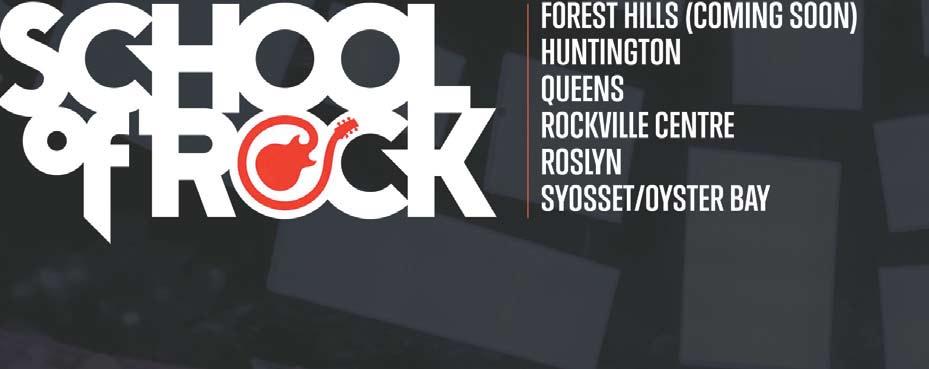



























April 2024 | The Special Child 9
here Learning is Transformative Long Island Campus Learn more at winstonprep.edu Scan the QR code to visit our LI Campus Overall Faculty to Student Ratio Average Number of Students in Each Class 3 0 Average Time Spent in 1:1 Focus Program Each Week 3 5 hours over 99
of Winston Prep students graduating high school LEARN MORE 516-234-ROCK MUSIC LESSONS DONE DIFFERENTLY GUITAR BASS DRUMS KEYS VOCALS
Percentage
Early Intervention for Dyslexia
Helpful tips from an expert
Statistics from the Yale Center for Dyslexia & Creativity show that dyslexia affects 20 percent of the population and accounts for 80 to 90 percent of all those with learning disabilities, making it the most common neuro-cognitive disorder.
While dyslexia is a chronic condition that’s rarely cured, early identification and intervention can help build essential skills for reading, writing and comprehension.
Early signs of dyslexia and intervention practices may vary from person to person. We sat down with Dr. Rebecca Mannis, learning specialist and founder of Ivy Prep, about signs of dyslexia that parents can look out for and what intervention may look like.
What are some early signs of dyslexia that parents can watch out for?
Toddler/preschool
• Delayed language development
• Difficulty following multistep directions
• Frustration in communicating – difficulty retrieving words or labels
• Difficulty sitting and retaining the story at circle time
• Meltdowns over communication and transitions
Preschool/primary school
• Difficulty with rhyming (ex: Dr. Seuss books) or appreciate language nuance (ex: getting the joke in Amelia Bedelia books)
• Lack of recall for reading common “sight words” they often see, such as “love” or “taxi”
• Lack of interest in reading or writing
• Contrast between strong interest in hearing stories (being read to) and interest in learning how letters fit together to make words
• Difficulty with segmenting words into sounds (c-a-t) or syllabication (clapping out the syllables in their names “Ga-bri-el”)
• Hesitation about attending school or academic performance
• Difficulty “encoding” or writing short words that can be sounded out or remembering the spelling of “Dolch List,” high
frequency (common) words like “love” or “mother”
• Reversing letters
• Skipping words when read aloud
• Slowness at blending sounds of words or recalling what sight words “say” (lack of fluency/automaticity)
• Dysgraphia, or difficulty in the motor planning of how to hand write letters
What does early intervention for dyslexia look like?
This depends on the individual child’s learning profile and what is being done on-site (or not provided) at the school. Some
children require specialized schools for dyslexic students, where systematic, multisensory approaches are used on a daily basis and across the classes a child has each day.
Other students can thrive with customized support outside school with learning specialists who are trained to interpret test findings and develop an intervention plan that speaks to the specific child and the specific school’s curriculum.
This is where it is particularly important for parents to do their homework. Not all learning specialists have the same training or vantage point about support, and it is big business.
10 NewYorkFamily.com | April 2024
special child
? ? ? Y L I ?
E M D A F X S O
There are different philosophies and approaches, and sometimes what is presented as “evidence based” is actually a cookie cutter approach – or the wrong pacing and sequence for your child’s particular needs.
For example, if a student needs high repetition of information or to preview information in order to keep up with the class work, then it is important for a learning specialist to design sessions that balance the specific instruction for underdeveloped skills that are not course-related (for example, how to divide long words into syllables) while also using the child’s homework spelling list or the sight words in their science chapter to manage schoolwork and get that real-time reinforcement of reading strategies that speak to the daily experience in the classroom.
Similarly, it is critical for parents to identify professionals who can balance traditional print tools, such as workbooks and games that reinforce the skills, with adaptive technology. This is where parents can feel particularly frustrated, as neuropsychologists are not educators, and educators are not neuropsychologists.
Approximately 80 percent of my clientele and I start with a consultation where I provide a chart review to demystify the test findings to help parents “connect the dots” between their observations, test findings, and working with schools or other stakeholders.
There is a huge element of “caveat emptor,” since so much of this is not licensed and these high stakes serials can overwhelm kids and parents alike.
Even when specialists have licenses, there is wide variability in skill set, how intervention sessions are constructed, and even attitudes about which support is needed.
For example, at times language specialists or occupational therapists will feel there is more work to be done in grade 4 or 5 in shoring up underdeveloped language or fine motor skills, while other specialists may feel that the priority needs to shift toward teaching students how to communicate better in writing or use adaptive tech, dong so with an eye toward ongoing challenges in processing speed, word finding or handwriting.
How can parents and schools support a child with dyslexia?
Support for dyslexic students is equal parts, art, science, and alchemy.
It’s critical for there to be a systematic approach. Sometimes that means using very similar materials in both outside support and
“There are different philosophies and approaches, and sometimes what is presented as ‘evidence based’ is actually a cookie cutter approach – or the wrong pacing and sequence for your child’s needs.”
during the academic day or in reading intervention at school.At other times, it makes more sense to “divide and conquer.”
For example, at school, a teacher may be focusing on how to write a paragraph with a topic sentence, three supporting details, and a conclusion using a “quick outline” that is very structured, streamlined, and predictable.
In remediation, it can be very helpful for the outside specialist to use the same “quick outline” that the teacher uses in history class. And it may be important to work on writing while using the History assignment if the child is fatigued or has other after-school activities that day.
However, the outside learning specialist may also be incorporating instruction in how to use a predictive word processor, or in helping the child with expanding his vocabulary, so that he doesn’t rely on a narrow lexicon of words to communicate his point in the essay.
Similarly, it may be that at school, the teacher is working on a particular spelling curriculum, where the focus is on spelling words with particular prefix patterns.
In outside support, those words can be practiced, but it’s important to use particular methods that are aligned with the child specific type of dyslexia to ensure that appropriate visual cues or phonetic (sound-letter) patterns are reinforced.
The truth is that this takes a great deal of expertise and time in order to identify ways that support can be integrated while also being realistic about what each individual can contribute to this process.
In the absence of this, it can be very time-consuming and confusing, and also frustrating, not only for the children, but for their parents.
In my practice, I am in frequent contact
with other stakeholders, and typically serve as a case manager, who integrates that information, not only to demystify the process, but also to help parents identify signposts that they can be looking for both to monitor their children’s growth, and to determine the best investment of their resources and the child’s time, if they’re not satisfied with the child’s development.
Another element of providing services to the child and family is helping parents truly understand the different philosophies and methodologies that are available to help children with disabilities.
For example, many specialists will encourage a multisensory, phonics based approach that reinforces sound patterns for children since about 60 to 80% of children with dyslexia have difficulty with phonology, or linking letters to sounds.
However, the research on these highly structured methods and their efficacy with children with more spatial difficulties, sometimes called “NVLD,” or nonverbal.
Learning disorders are mixed. In that situation, a child may need a well developed, but more eclectic approach that helps them for example, to memorize and write sight words, words like “though” or “again,” words that cannot be sounded out phonetically.
Similarly, there are some schools that believe strongly that in the lower school grades, adaptive technology should not be used with children, while other outside specialists or schools integrate technology as a literacy tool for children with developmental dyslexia from the get-go.
Because there is such a wide wide range of approaches, and often neuropsychologists don’t know the nuts and bolts of how these programs are implemented for specific curricula, it is important for parents to understand that, just like learning to read is developmental.
In the same way, learning how to line up your ducks in a row to best serve your child at a given time is an extended learning process – and process of collaboration and empowerment – for parents, as well. No one cares about a child more than a parent, so it is critical to take care of yourself so that you can manage the long haul, along with your spouse and child.
What do accommodations typically look like for dyslexia, at home and in the classroom? What would workarounds look like in everyday life?
Accommodations can look different for children, depending on their learning profile, their school, their grade level, and the situa-
April 2024 | The Special Child 11
tion in which accommodations are necessary.
For a child with language-based dyslexia in the early grades, accommodations might take the form of an alternate method of assessing a child’s spelling, or having an extra set of workbooks to keep at home for use with the outside specialist. The child may be permitted to write fewer spelling sentences on his exam.
That child might need access to a computer in grade 3 to write his weekly journal so that he can focus on expressing his ideas without being encumbered by dysgraphia, or handwriting difficulty.
At grade 5 or 6, that might take the form of being able to have extended time on a test or to take a standardized test in a room over multiple days. Similarly, the child might require some adaptive technology or access to a textbook website, where the child can find PowerPoint slides to preview key terms or information that they will be studying in science class.
Upper school or college, that might take the form of having an advisor, who is attuned to their learning issues, and who can guide them in managing multiple classrooms and teachers. Similarly, children may require the accommodation of being able to substitute the format of a “computer-delivered” standardized admissions or achievement test, instead taking the test in a traditional booklet format.
That means that the child can write into a test booklet with a proctor. Copying his answers onto a Scantron or “bubble sheet,” rather than needing to visually track the paragraph on a computer monitor.
This is a critical accommodation because many standardized tests are moving toward “computer- adaptive,” or mini computer tests, which are actually constraining for students who have a more gradual learning curve, visual deficits, or a slower processing speed.
Similarly, a dyslexic child who has slow processing speed or working memory difficulty may need extra time to complete certain assignments, or may need assistance with laying out a plan for how to manage school and extracurricular activities in light of their slower processing speed or executive function difficulties.
Students in high school or college may also need approval to tape record lectures, or have access to teacher notes or classmates notes if they’re not able to process as much detail as necessary in real time during the lecture.
This is why it’s critical to identify specialists who can mystify neuropsychic, test findings and help parents and students to work with the school around accommodations,
“Children can develop ‘metacognitive awareness,’ or an understanding of themselves as learners, and why certain approaches can be particularly helpful for them.”
curriculum, and intervention.
Support from parents is important for children with dyslexia. How can parents show their emotional support for their dyslexic children?
Any time that a person‘s own development takes a course that is not “typical,” this places a stressor on the individual and the other people in their life.
Whether it’s learning how to tie your shoes, how to memorize the spelling words, or adapting to college textbooks and lectures as a gifted, “twice exceptional” dyslexic, ultimately developmental, learning problems are a lifelong process of learning, adaptation, and advocacy.
The upshot is that over time, children can develop “metacognitive awareness,” or an understanding of themselves as learners, and why certain approaches can be particularly helpful for them. Over time and significant support and practice, this helps kids learn how to be their own “change agents.” However, this is a gradual process, and developmental learning problems, especially for bright kids, in demanding learning environments, is a gradual experience.
It is important for parents to recognize this, so they can think tactically about how they can support their children while also taking care of themselves.
Whether it’s having sufficient time to work out or finding a sounding board to talk about frustrations while also being there to help your child with extra homework, parents need to plan for the immediate and for the long run.
That may be a matter of doing some careful looking at how you will fund outside support for your child for the long run, or how to give attention to siblings and their needs. This can be a difficult, disheartening, and stressful experience for even the most determined, loving, supportive and capable
of parents.
Aside from taking care of themselves and building a village of outside resources, whom they respect, parents can model for their children along the way.
For example, just as children may require more time in order to research and write a term paper if they are dyslexic, parents can model for their children how they are breaking down the process of updating their resumes or planning of family trips by working in manageable chunks.
In addition, it is important for parents to remember that their job is to be parents and not educators or interventionists. Otherwise, the task and frustration of helping kids manage learning issues for the long run can really interfere with a parent and child relationship and can be disheartening for everybody involved.
Most importantly, parents can help their children, identify factors that contributed to their own success, or what it is that children feel need to be done differently in order for them to have a better experience in a similar situation in the future.
For example, if a child is able to juggle the start of baseball season in his Little League team and preparing for the spelling bee, parents can encourage their children, self reflection, or metacognitive awareness, by asking them some open, ended questions. “What do you think made the difference when you were going to have a busy day of both Little League tryouts and reviewing all three vocabulary lists?”
This opens the door for the child to then reflect and share so that you can plan. For example, he may say, “It was very helpful that my learning specialist and I wrote the words on flashcards last week. This meant that all I needed to do was practice spelling.” Or your child may feel that it was helpful when you and he use Scrabble letters for him to practice the spelling of the words or when you had located a website that let him practice unscrambling words in an app.
It may be that your child felt better having had a quiet day before so that the reduced transitions left him feeling more rested and able to juggle Little League and the preparation for the spelling bee.
The more you help your child self reflect, the more you can help him, celebrate his success, identify what he feels and be his own change agent. It can make the difference, and he will see you as the support and sounding board who is cheering him on through this developmental journey.
12 NewYorkFamily.com | April 2024
speCial Child
ADAPTIVE AQUATICS
LESSONS FOR SWIMMERS WITH SPECIAL ABILITIES

Saf-T-Swim brand Certified™ Adaptive Aquatics instructors have experience teaching the necessary skills at the appropriate time for children with a variety of special abilities, including:
• ADHD
• Autism or ASD and other related developmental challenges
• Cerebral palsy
• Down syndrome
• Sensory struggles
• Other physical challenges

Scan here to learn if Adaptive Aquatics is the right choice for your swimmer!

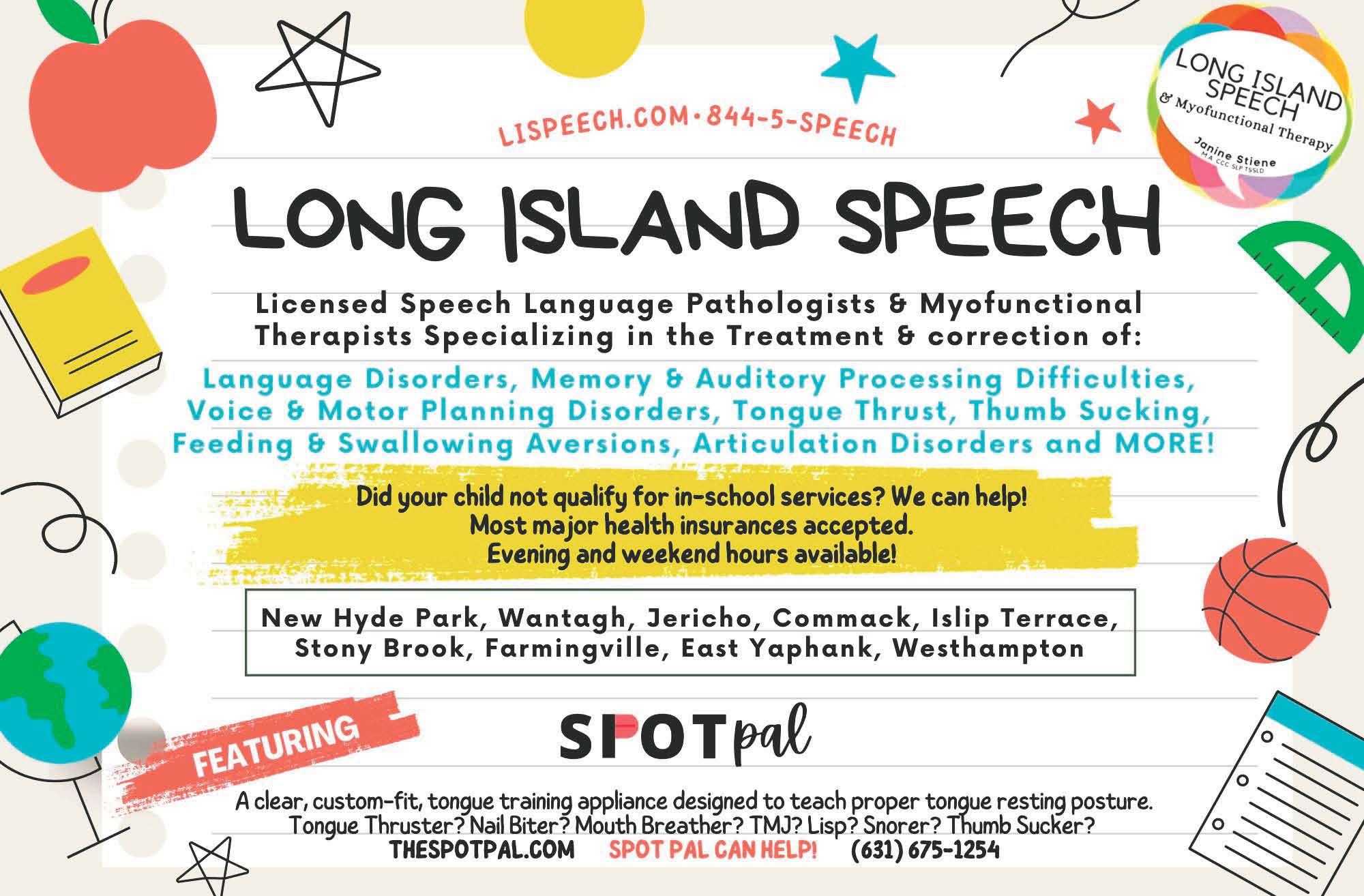
April 2024 | The Special Child 13
ADHD in Children
Symptoms, causes and treatments (other than medication!)
By Jeannine Cintron
Ithink my 12-year-old daughter has ADHD, but she’s not (yet) been diagnosed. Why? Because when I finally decided to have her evaluated, after years of being on the fence about it, I was advised against “opening that can of worms" as long as none of her teachers had ever recommended it.
Can of worms? Really?
While none of her teachers ever expressly recommended an evaluation, I always heard things like “takes forever to complete classwork” and “has trouble focusing” and “gets distracted easily.”
ADHD, or Attention Deficit Hyperactivity Disorder, is described as a chronic neurological condition marked by persistent inattention, hyperactivity, and sometimes impulsivity. It is one of the most common mental conditions in children. Around 6 million children ages 3 to 17 have been diagnosed in the U.S. alone, according to the CDC.
Despite the staggering statistics, I think a lot of people - even professionals, apparently - have this stereotypical view of ADHD that it's just an excuse for lazy or bad behavior, one many parents use to medicate their children into being good without even considering whether other treatments are available. That stigma leads a lot of parents (myself included) to assume medication is the only way to treat it, and that the medication will turn their kids to zombies anyway.
But if your child is showing signs of having a developmental disability like ADHD, don't be like me and wait until they are halfway through middle school before you finally decide to take action just because a teacher never told you to. No one knows your child like you do, so if you are concerned, have them evaluated and know there are options beyond medication (and also know that medication might actualy end up being the right choice for your family).
I spoke to Dr. Rebecca Jackson, a board certified cognitive specialist, Brain Wellness Expert, and author of Back on Track: A Practical Guide to Help Kids of All Ages Thrive , which delves into developmental red flags, to learn more about ADHD, why diagnosis seem to be
on the rise and what parents can do if they are concerned.
ADHD Signs & Symptoms in Children
Hyperactivity. According to Dr. Jackson, the “H” in ADHD, as in hyperactive, tends to be more noticeable in younger children. "The older your child is, the less likely you are to note the hyperactivity,” she says. “The hyperactivity component tends to be the piece that draws attention the most. It’s disruptive in the classroom, at the dinner table, on playdates. So oftentimes, the first sign or symptom that parents see is the hyperactivity impulsivity, because of all the disruptions happening.”
Inattentiveness . “What is much more easily missed is the inattentive type of ADHD,” she continues. “And that one becomes more evident the older a child gets, because with that you don’t have the loud disruptive behaviors, but you see heightened challenges with executive functions. This is going to be the child that does the homework and forgets to turn it in. And as a parent, you’re like, ‘Are you kidding me? You already did the hard work!’ You find yourself saying, ‘why didn’t you just…’ all the time. Why didn’t you just remember to bring your lunch with you in the morning? Why didn’t you just turn in your homework?”
Limited Attention Span . We all have a natural window of attention, according to Dr. Jackson, and our attention develops with age and maturity. “A two year old is only going to do a thing for two to four minutes at a time. But by the time they get to kindergarten, a child should be able to sit in the circle and participate for a longer period of time. So as a parent, if you’re not seeing your child’s natural window of attention improving over time, and if everybody else in the class is able to attend to the task long enough to complete it, but your child’s needing redirection or needing to bring it home, that is a red flag.”
Task Switching . Executive functions are our ability to achieve a goal, like turning in homework to get good grades. Individuals with ADHD have a harder time with task switching and with executive functions. “Let’s
say I’m working on a project and my phone dings to tell me I have a text message. I’m going to shift my attention to my text message,” says Dr. Jackson. “Task switching should remind me to go back and finish the project that I started. But with ADHD, it’s harder task switching when the brain is not remembering to go back and finish what it started. Lots of started things don’t get completed.”
Emotional regulation . People with ADHD tend to have difficulty managing frustrations. We all have a point where we get frustrated and upset, or we cry when we’re really angry or we lose our temper. “With ADHD there’s an immaturity in some of those networks and pathways in the brain, and so the upsets can happen more frequently,” Dr. Jackson says. “They can last longer and they can be bigger. And so if you’ve got a daughter that’s really dramatic and always getting super upset with friends, that can be a red flag. Or a boy playing on the playground who gets super upset because people aren’t following directions, that can be a red flag. And again, we all have a threshold of when we lose our temper. But if it’s happening more consistently than peers that are appropriate in their development, that’s a concern.”
Causes of ADHD
So what causes ADHD? That’s the million dollar question, Dr. Jackson says. “There are a lot of different factors that can contribute to ADHD. Both genetics and environmental factors can play a part. If a child experiences trauma, abuse
14 NewYorkFamily.com | April 2024
special child
or neglect, it can interfere with development.
"But there’s also the times where I meet a parent with two kids, same household, same environment, same genetics, and one child is thriving while the other faces challenges with ADHD.”
Technology & ADHD
I asked Dr. Jackson if the overuse of technology is a factor in developing ADHD. “I’m not going to say that scrolling social media and gaming causes ADHD, but what I am going to say is that the individual with ADHD is going to be even more susceptible,” she says. “When we’re spending large chunks of time, scrolling the Internet, whether we’re watching YouTube videos or Tik Tok, videos or gaming, the type of attention we’re using is heightened attention. And when you’re in that hyper focused mode, you lose awareness of time and of what’s happening around you. It’s why when you go to bed at night and say ‘I’m just going to check my phone for a minute,’ before you know it an hour passes and you’re still scrolling.
“Hyper focus is incredibly fatiguing on the brain. It makes the brain exhausted. Let’s say you’ve got an eight year old who just spent two hours on Tik Tok or watching YouTube videos or gaming. When you ask them to stop, you’re going to get tears, pushback, negative behavior. It’s not just that they don’t want to stop. It’s that we just allowed them to completely fatigue their brain and their resources. And now we’re asking them to be able to regulate their mood and emotions.
“When you watch something that you
like, funny dog videos for example, there’s a dopamine release in the brain.that gives you a burst of energy.
“So when a parent asks why they can game for an hour but they can’t do 20 minutes of math, it’s because gaming is short bursts of attention strung together with a dopamine reward in the brain. When you’re doing math, there’s no dopamine reward in the brain. So our kids are exercising their reward-driven pathways, not sustained attention. The individual with ADHD is starting with a brain that’s already fatigued, so they’re going to fatigue even faster. And that dopamine is hitting them hard and so they’re going to gravitate towards those activities even more. As parents, we don’t want to ban things but be mindful of the balance. So say, ‘sure, you can spend 20 minutes online, but you’re going to get your homework done first. We shouldn’t have you gaming and fatiguing the brain before you do homework. And then we don’t want it in the hour before bed because it can disrupt the ability to fall asleep and the quality of sleep.”
ADHD Treatment
Speaking of quality of sleep, that’s one of the components to managing ADHD on a daily basis to support the level of function that you currently have. Dr. Jackson recommends making sure kids are getting adequate sleep and eating nutritious foods. “We know that sugar drives inflammation and so does highly processed food. Inflammation is like asking your brain to function with fog. What you eat matters,” she says
Medication
To medicate or not medicate, that is the question. There can be many side effects related to ADHD medication, and so naturally parents might be hesitant to try it on their child. Conversely, some parents might think medication is the easy cure-all their child needs to get back on track.
Anytime there’s medication, there’s a trade off, Dr. Jackson explains. “There are pros and cons, risks and benefits that it’s important for parents to understand. We talk to so many families that are getting pressure from teachers or from other adults in their life to medicate their child. But that is a decision solely between the parent and the physician, that should not be based on outside pressure from others.
“I don’t ever want a parent to feel guilty about a decision they make. But there’s this misnomer that we’re going to start medication and all of our problems are going to be solved. It’s difficult figuring out what’s the right medication
for your child, the right dosage and combination. And what works now might not work six months from now. So it’s not always the quick, easy fix that parents think it’s going to be.
“What we know from the research is that there’s an impact on growth and development. A child that has been medicated over time might not grow to their full height. We know within the first several months of taking medication, there’s not always long term change in the grades and learning outcomes. So the studies were mixed in terms of how it helps with academics and learning. A lot of kids experience decreased appetite, so we have kids that already have immaturity and brain development, and our foods that we eat fuels the growth and development of our brains. We’ve got an immature brain and a suppressed appetite, and that worries me for the future development of that brain."
Brain Balance
While medication can help, there are other treatment options that parents might not be aware of. Dr. Jackson is Chief Program Officer for a company called Brain Balance, which is a program that builds and strengthens networks and pathways in the brain through specific stimulation, exercises, and activities. “I always say we exercise the brain the way you use it in real life," she says. "At Brain Balance, we’re engaging multiple different senses while a child is doing coordinated, fast, accurate eye movements with auditory processing, visual processing, body coordination, rhythm and timing, exercising and engaging as many networks and pathways as we can simultaneously. And then we engage those pathways over and over to make them stronger, faster, more efficient.”
A child does not need an official ADHD diagnosis for this kind of non-medicated treatment, either. Nearly 10% of kids in the US right now qualify for that diagnosis, but nearly 17% of kids qualify for what is called a subthreshold diagnosis, meaning they’re falling just shy of the criteria. I think this is really important because the kids can still be struggling to keep up, to pay attention and to regulate mood and emotions. With subthreshold ADHD, there’s immaturity of the brain, but maybe not quite to the extent of full ADHD, so they don’t qualify for a label or a diagnosisand would not be prescribed medication - but that doesn’t mean that they still don’t need help and support.”
To learn more about Brain Balance, go to brainbalancecenters.com. Dr. Jackson’s book, Back on Track, is available on Amazon.
April 2024 | The Special Child 15
autism b ehavioral consulting s ervices
Karen Bottalico, SAS, SDA 516-851-8330
kbottalico2002@yahoo.com
An Educational Consultant serving Queens and Long island and the NY Metro area. Working directly with families, services include: Evaluating placement and service options; Accompanying parents throughout the entire CPSE or CSE process which includes meetings, screenings, observations and extensive education history reviews. Other services include Staff Training, School-Based Consultation, FBA Assessment and B i P implementation, Verbal Behavior Training Techniques, Behavior Management Strategies, Home/School intensive Behavior intervention Services, Crisis intervention and Prevention, Home-Based Services and Parent Education Training.
comprehend the Mind P.c .
114-20 Queens Blvd., Suite CS 2, Forest Hills 718-441-0166
comprehendthemind.com
Comprehend the Mind is a group of school and neuropsychologists that diagnose and assess a variety of conditions. Neuropsychological, educational, speech and language, and psychiatric evaluations are performed to help you understand your child’s strengths and weaknesses, and plan for their educational success and emotional wellbeing.
d ragonfly a pplied b ehavior a nalysis P c
550 North Country Road
Saint James, NY 516-531-3673
Dragonflyaba.com
hello@dragonflyaba.com
Dragonfly ABA aims to offer exceptional ABA services throughout Long island. They provide school, home, B iS, and center-based opportunities for early learners and
young adults with disabilities all year round. Each individual’s plan is customized to their specific needs, and Dragonfly ABA encourages parent involvement and education. Their team undergoes ongoing professional development training and consistent supervision to ensure clinical excellence with each of our clients.
the h agedorn little village school
Jack Joel Center for Special Children
750 Hicksville Road, Seaford 516-520-6000 littlevillage.org
jon.feingold@littlevillage.org
The Hagedorn Little Village School is a not-for-profit school highly regarded for providing outstanding educational and therapeutic services for children with a wide range of developmental disabilities. HLVS provides yearround programs and services that include diagnostic evaluations and treatment, early
intervention, a preschool, an elementary school, SEiT and related services.
long i sland s peech
Nine locations lispeech.com
Long island Speech is the leading speech therapy provider on Long island with 9 locations in Nassau and Suffolk County. They specialize in Myofunctional Therapy, PROMPT, Voice Disorders, Fluency, Augmentative Communications, Articulation, Feeding Therapy, Auditory Processing, Expressive/Receptive Language Disorders and so much more. Long island Speech participates with most major health insurance companies and offers evening and weekend hours. Call 844-5-SPEECH to schedule your first appointment, or visit LiSpeech.com.
s af-t-swim
Multiple Locations in Nassau and Suffolk, Little Neck 1-866-723-3794

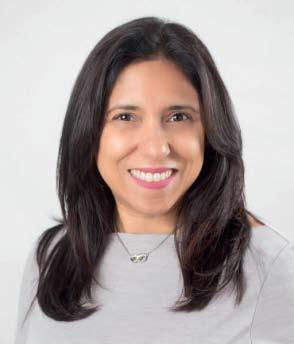
16 NewYorkFamily.com | April 2024 S pecial N eed S d i R ecto R y | Special Advertising Supplement
saf-t-swim.com
info@saf-t-swim.com
At Saf-T-Swim they prioritize swimming as a vital life skill, ensuring all children, regardless of challenges, learn water safety basics. Their Adaptive Aquatics program provides a safe environment, tailored to each child’s abilities. instructors specialize in teaching diverse abilities like ADHD, autism, and cerebral palsy. Programs like Therapeutic Aquatic Program (T.A.P.) and Adapted Swim Levels offer customized lessons for individual goals and interests, ensuring every child can enjoy the water safely and confidently.
school of rock
Forest Hills - Coming Soon Huntington - 145 East Main Street
Queens - 34-43 Francis Lewis Blvd Ste 2
Rockville Centre - 197 N Long Beach Road
Roslyn, 915 William Avenue
Syosset/Oyster Bay - 180
Michael Drive 516-243-ROCK(7625)
schoolofrock.com/stonewhite
School of Rock’s program caters to all students. Fostering inclusion and creativity, our program provides tailored music education, embracing each individual’s unique abilities. Through personalized instruction and supportive environments, students explore the joy of music while enhancing social skills and self-confidence. School of Rock’s program embodies our commitment to empowering every aspiring musician, ensuring that music truly becomes a universal language of unity and expression
tiegerman s chool
100 Glen Cove Avenue, Glen Cove, NY 11542 516-609-2000
Tiegerman.org
Rosemarie King, Admissions Coordinator rking@tiegerman.org
Tiegerman is a NYS approved non-public school program
(K-12) for students with special needs. Our campuses in Nassau and Queens Counties serve students throughout Long island and the five boroughs. Tiegerman’s innovative program specializes on the relationship between language development and academic success, providing intensive language immersion and academic instruction while meeting the individual needs of each student. To find out more, visit our website at tiegerman.org and register for a tour.
vella consulting i nc
Port Washington, NY 917-578-2724
alternativesuccess.com
lisa@alternativesuccess.com identifying the appropriate setting or level of care can be overwhelming and Vella Consulting has extensive experience with traditional and non traditional settings to support various diagnosis and concerns. Placement options can include day schools,
traditional boarding schools, short term and/or long term residential settings, young adult programs, college and more. Services are provided for children, young adults and adults. Therapeutic and Education Alternatives includeTraditional Boarding Schools, Therapeutic Boarding Schools,Wilderness Programs for Adolescents and Young Adults and more.
Winston Prep long i sland
30 Deforest Road, Dix Hills 631-779-2400
winstonprep.edu
kpreston@winstonprep.edu
Winston Preparatory School
Long island is a leading school for students with learning differences, including dyslexia, ADHD, and nonverbal learning disorders. Learn more about their nationally recognized program at winstonprep.edu.

April 2024 | The Special Child 17
Special Need
All parents need resources, information, and guidance. These tools help aid our children with their needs and growth. Special needs parents lean on helpful information and especially count on a community to assist them in their special needs journey. It is those insider tips, those teachers, experts, and schools we need to know about and make a difference in our child’s life.
Here are people who are part of our (and your family’s!) Special Child Community.
Steven nunez
Swim instructor, Adaptive Aquatics / SafT-Swim Swim School
Steven Nunez, a respected Saf-T-Swim instructor, has taught Adaptive Aquatics for 7 years. His greatest joy is witnessing students conquer their fear of water, fostering a sense of freedom and self-expression. Steven emphasizes patience and adaptability, tailoring each lesson to the student’s abilities. Some students progress to full strokes, exceeding the Saf-T-Swim’s Adaptive Aquatics program. Steven advises instructors to collaborate with families, celebrate small victories, and tailor communication to each student’s needs for effective teaching.
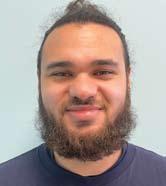
Deanna ibanez Director of Center-Based Services, Dragonfly Applied Behavior Analysis PC
Deanna oversees the early learner center at Dragonfly ABA as a Licensed/Board Certified Behavior Analyst. She earned her Bachelor’s in Psychology and Special Education with a concentration in ABA at JMU. She then received her Masters in ABA at LIU. Deanna is motivated by the success she witnesses while working with her clients and values the connections with each child and family! She also loves educating BT’s and watching them grow in BCBAs themselves!

Sanam Hafeez
CEO, Comprehend the Mind P.C.
Dr. Sanam Hafeez, is a NYS licensed Psychologist. Dr. Hafeez founded CCPS, (Comprehend The Mind) in 2006 for neuropsychological assessments. Dr. Hafeez has taught at many universities and speaks as an expert on a variety of educational, medical and legal platforms. Dr. Hafeez is highly sought out by the media, as an expert on various issues. She advocates for the neurodivergent and the underserved. Dr. Hafeez enjoys her time most with her twin boys.

Jon feingold
Executive Director, The Hagedorn Little Village School

Dr. Feingold earned his B.A. from SUNY Albany, and M.A. and Ph.D. from Hofstra University. He is a certified school psychologist, a licensed marriage and family therapist and a licensed psychologist. He began working with HLVS in 1995 and has served as executive director since 2009. Dr. Feingold maintains a part-time clinical practice, serves on the boards of several programs, and has presented at conferences throughout the world. He enjoys the support of his wife Iris and daughter Sammy.
Janine Stiene
Owner and CEO, Long island Speech
Janine Stiene (MA, CCC-SLP, TSHH), is a licensed speech-language pathologist, teacher of the speech and hearing handicap and trained myofunctional therapist with over 24 years of experience. Stiene is the owner and CEO of Long Island Speech, a private speech pathology practice with nine locations across Long Island, and the founder and CEO of Spot Pal, a tongue training appliance designed to teach proper lingual resting posture and support the elimination of a tongue thrust.
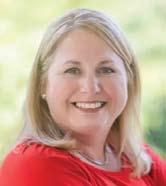
ellenmorris Tiegerman
Founder and CEO, Tiegerman Schools and Tiegerman Community Services
Ellenmorris Tiegerman, Ph.D. is the founder and CEO of Tiegerman School (1985) and Tiegerman Community Services (2010). She has advanced degrees in speech language pathology, special education and social work. Ellenmorris has lectured extensively on topics related to children with disabilities and their families, and educational politics. She has been involved in many research projects and is the author of several textbooks.
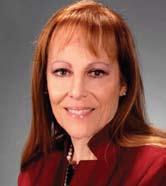
18 NewYorkFamily.com | April 2024 S pecial N eed S d i R ecto R y | Special Advertising Supplement Special Need S c ommu N ity
Check us out Online! We’re the #1 print & digital lifestyle platform for engaged parents in New York. Visit newyorkfamily.com to check it out and sign up for our weekly newsletters!
S c ommu N ity
lisa Vella
Educational and Therapeutic Consultant, Vella Consulting, inc.
Lisa Vella is an Educational and Therapeutic Consultant who provides guidance when an alternative setting is needed. Lisa has many years of experience in the field of education and administration and supervision of schools. Vella started as an educational consulting and therapeutic practice because she was passionate about helping families heal. She started Vella Consulting to help parents of children with special needs receive continuous and carefully individualized support.


 keith oncale Head of School, Winston Preparatory School Long island
keith oncale Head of School, Winston Preparatory School Long island
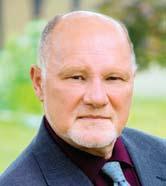
Keith Oncale joined the Winston Prep Faculty in 1999. He served as dean of students and academics at WPS Manhattan campus and the Connecticut campus, before being named head of school at the Long Island campus when it opened in the fall of 2018. Keith has worked with children who learn differently for over thirty years. He holds a B.A. from the University of North Texas and a master’s degree in liberal arts/humanities from Southern Methodist University.

Mommybites.com provides expertly curated resources for all parents in the New York area, including our most popular feature — our mom-generated nanny board — the best online source for parents to find vetted (by other parents), experienced nannies and childcare providers who want to work in New York City, Westchester, Long Island and Northern New Jersey.
We can’t wait to see you there! is now part of
MommyBites.com
April 2024 | The Special Child 19










































































 keith oncale Head of School, Winston Preparatory School Long island
keith oncale Head of School, Winston Preparatory School Long island

